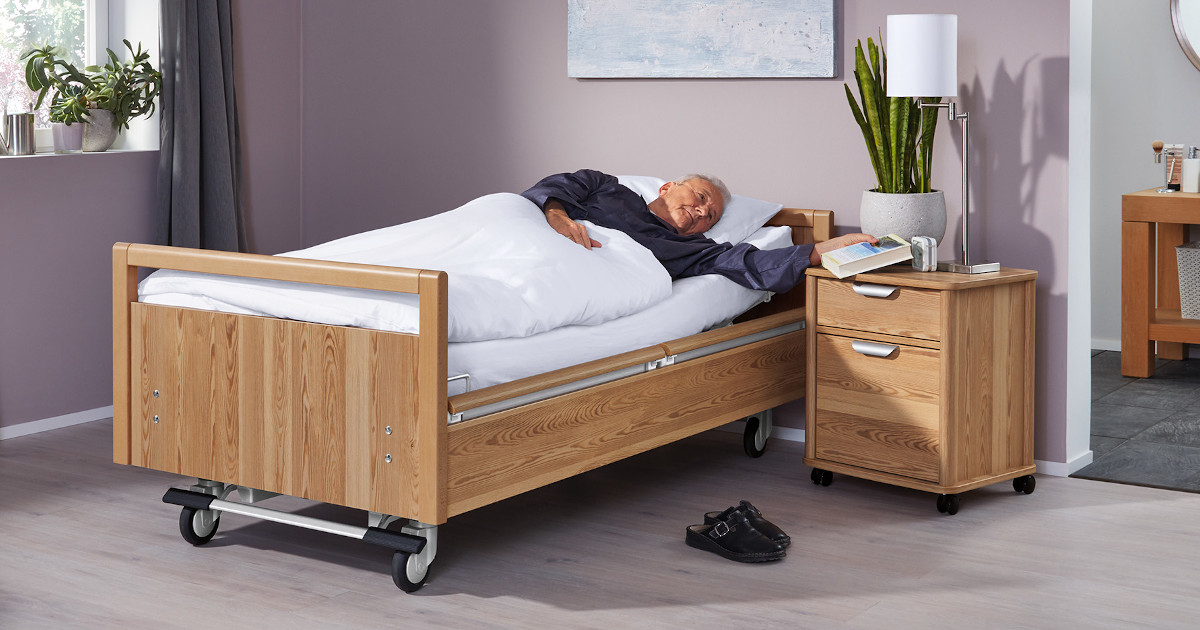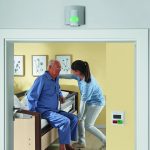With these tips, people in need of care can get a restful night’s sleep
Older people have different sleeping habits. Many wake up at night, are already active early in the morning. They go to bed earlier or take a midday nap. This is not a problem and most carers can take the needs of the elderly into consideration. However, it is important that there is sufficient and restful sleep overall. With these tips, healthy sleep is possible:
Eliminate illness
Dementia patients and senior citizens are often active at night. The reasons for this are, for example, pain, medication or a disturbed day/night rhythm. But it can also be caused by diseases of the thyroid gland or the heart. If the nocturnal restlessness occurs suddenly, diseases such as these should first be ruled out or treated.
Check medications
Medicine can also cause restlessness. For example, tablets that are supposed to balance serotonin levels often also influence sleep patterns. The same applies to certain vitamins and dietary supplements that can cause nighttime restlessness. You should therefore check the medication plan together with your doctor. It is often sufficient to take certain drugs at a different time of day.
Room temperature
If it is too warm or too cold in the bedroom, a bad night’s sleep is pre-programmed. The feel-good temperature varies greatly from person to person and ranges from 16 to 20 degrees. Many older people are likely to freeze and need it a little warmer. If you sweat a lot, you may tend to a temperature below 16 degrees. An air humidity of 50 percent is ideal.
Light influences the inner clock
Anyone who reads or brushes his teeth in the evening under full lighting disturbs the biological rhythm. Bright screens should also be avoided before going to bed. Light sources that can be dimmed are better. In general, there should be no bright lighting in the bedroom. However, a small night light is useful for dementia patients to avoid falls and anxiety.
In addition: if you get enough daylight in the morning and during the day, you support the day/night orientation of the body. Light therapy can also help on dark days.
Check bed and mattress
Does the mattress fit the elderly person’s lying habits?, Is the nursing bed appropriate to the needs and physical abilities?, What kind of bed and mattress is the pensioner used to? – Use these questions to check whether the bed and mattress can be the reason for poor sleep.
Sleeping clothes
Wide, breathable clothing is the right thing for a pleasant night’s sleep. The pyjamas should also be easy to put on and take off. Prefer the elastic waistband over buttons and bows. Check what the patient has preferred in his/her previous life: Nightgowns, one-piece suits or the classic trouser-top combination. Let the senior citizen choose the colours himself or herself, but look for rather quiet patterns.
Rituals and interior design
The usual reassures. If you go to bed at the same time every evening, read a few pages before going to bed, apply lavender cream to your hands and repeat certain activities every evening, you will cultivate rituals and „come down“. In addition to a quiet room design, the room should also have elements and objects that the person being cared for has already been familiar with over a longer period of time.
Toilet, dinner and drinking habits
Alcohol does not help (despite all popular wisdom) to sleep through the night. In general you should not eat heavy food after 5 p.m. in the evening and not drink much after 8 p.m. Before going to bed it is recommended to go to the toilet.
Sleeping pills
Sleeping pills, including those of plant origin, often interact with other drugs. Their use should be avoided or discussed with the doctor. Many chemical sleeping aids are also suspected of being addictive.


